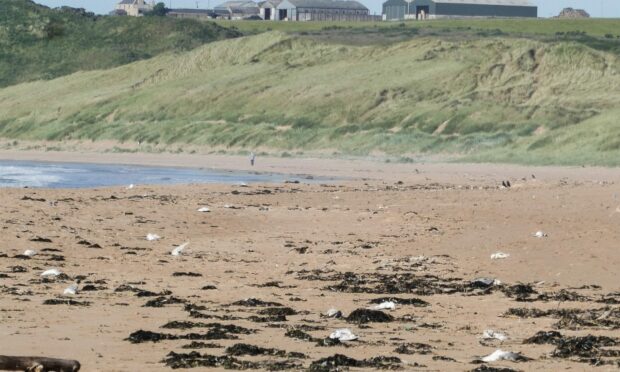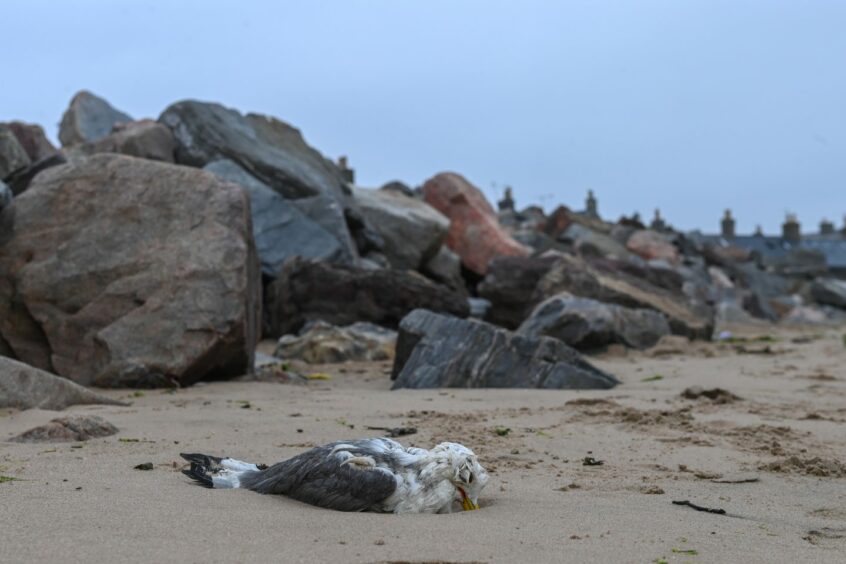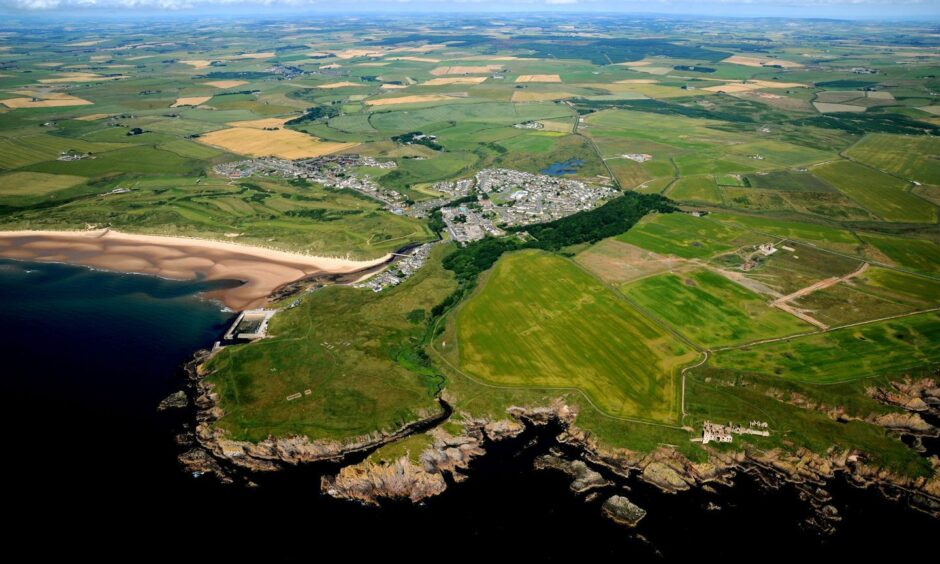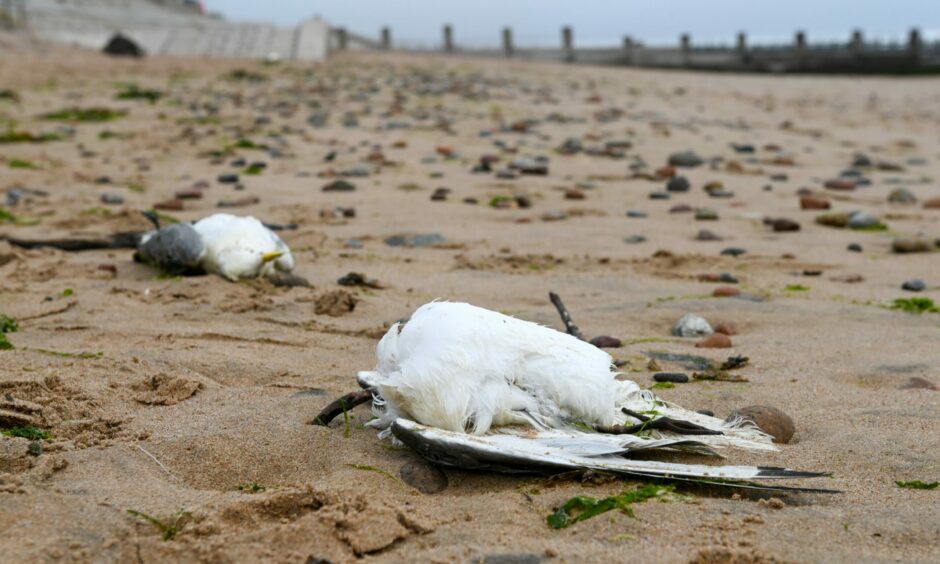A beach walker has been left horrified after discovering more than 100 dead and dying birds on Cruden Bay beach.
Mike Shepherd walks the sands at 7am regularly, but was so distressed he abandoned this morning’s trip.
He said the sight caused him to “gasp with horror” after he witnessed the dozens of corpses littering the beach.
It was close to high tide and he said he could see the creatures all along the beach “as far as the eye could see”.
Dying birds ‘look at you rather hopelessly’
At the water’s edge, he noticed some of the birds were still alive, but “only just”.
“They were too weak to fly away”, he said.
“They would just look at you – rather hopelessly.
“It is an extremely distressing sight.
“I decided I couldn’t carry on – it was too depressing.”
Mr Shepherd decided to turn around and head home. When he got there he decided he needed to do something, so picked up his camera and took a picture of the devastation to share the sight on social media.
He counted more than 100 dead birds on the beach.
What is causing the birds to die in Aberdeenshire?
It is the latest evidence of bird flu in the north-east.
Around 40 dead birds were spotted on Aberdeen beach on Saturday, while about 20-30 were spotted by the River Carron and neighbouring Stonehaven beach.
On Sunday, the Scottish Government’s chief veterinary officer said a “highly pathogenic” avian influenza exists and ordered a protection zone around an infected farm near Banff.
Last week, New Arc Wildlife Rescue Centre, near Ellon, announced it was closing its door to all birds due to avian flu concerns.
The disease has ravaged the bird community in the north-east in the past year, with 230,000 being killed in Aberdeenshire last December because of it.
It is thought this may be a new strain of the disease which is causing the recent devastation.
Are the dead birds a public health hazard?
Mr Shepherd has lived near Cruden Bay for eight years, even writing books on the area and its connection with Bram Stoker’s Dracula.
Although he said he has seen dead birds before, Mr Shepherd said he had seen “nothing on the scale of today” so far.
“There was such a sheer number of birds just rotting away on the beach”, he said.
What to do if you find a dead bird?
People have been urged to not touch or pick up any dead or visibly sick birds, as wild birds can carry several diseases that are infectious to people.
They have also been advised to keep pets away from any dead or sick birds and don’t touch wild bird feathers or surfaces contaminated with droppings.
If you find a single dead bird of prey, swan, goose, duck or gull, or five or more dead wild birds of any other species, this should be reported on the UK Government’s report dead wild birds webpage.
Alternatively, people can phone 03459 33 55 77.
A Sepa spokesman said: “We are aware of reports of bird carcasses on beaches in the area.
“While removal of the birds does not fall within Sepa’s remit, we do support local authorities in their response by providing advice if requested on appropriate disposal.
“We also provide regulatory advice to the Scottish Government and the Animal & Plant Health Agency in relation to captive birds, on cleansing and disinfection requirements after a positive avian influenza result.
“Members of the public are reminded not to touch any sick or dead birds and instead report these to Defra.”




